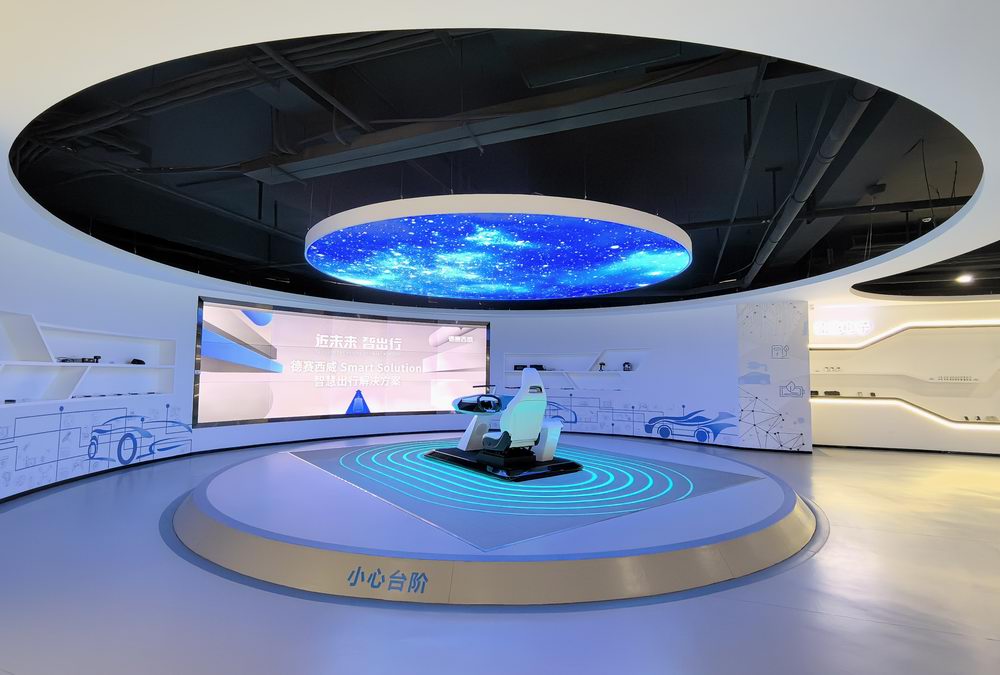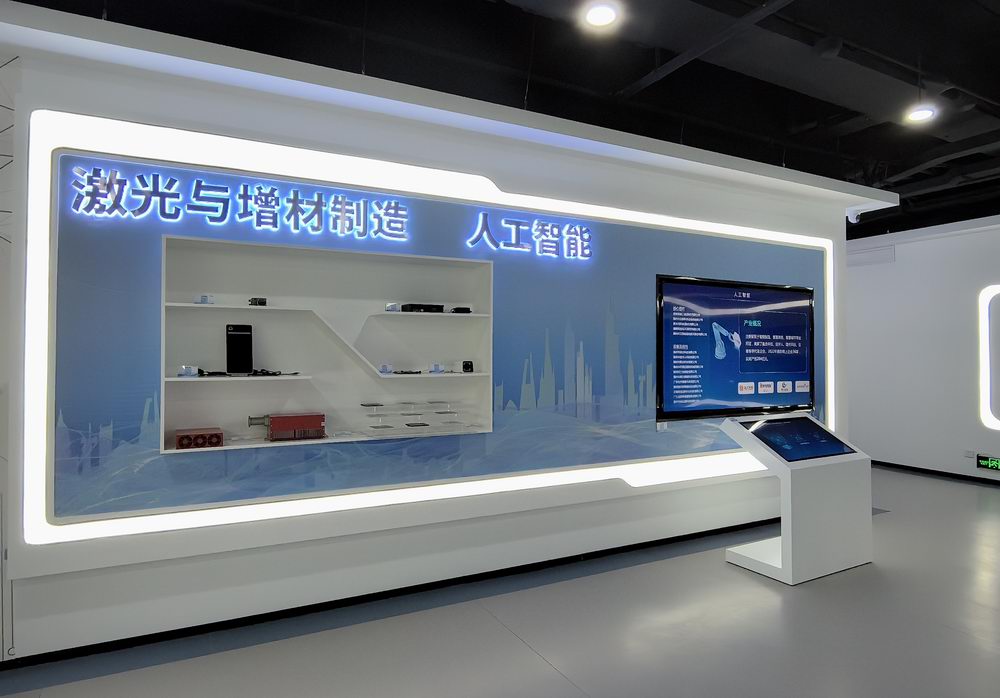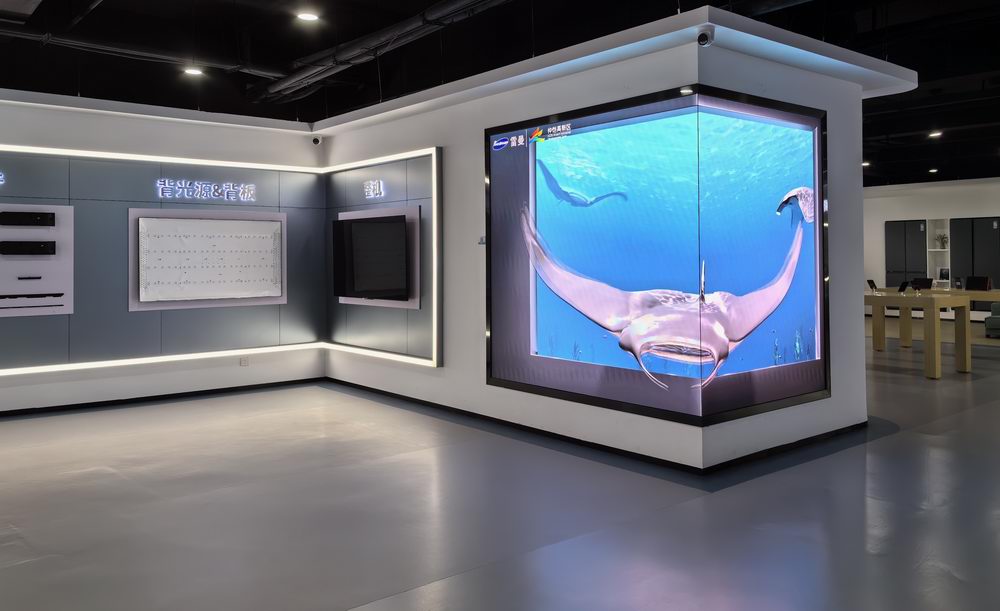What Are Intelligent Manufacturing Industrial Parks?

Intelligent manufacturing revolutionizes traditional production methods by incorporating advanced technologies, thereby boosting efficiency and fostering innovation. Industrial parks offer a well-organized setting for businesses to flourish. The fusion of these ideas results in an Intelligent Manufacturing Industrial Park. These parks cultivate a supporting industry cluster, encouraging collaboration and expansion. A prime example is the Huizhou Zhongkai High-tech Zone, where the National Foreign Trade Transformation and Upgrading Base, along with the Electronic Information Cloud Platform, plays a vital role. This platform supports enterprises within the park, enhancing their development and competitiveness.
Understanding Intelligent Manufacturing
What is a Smart Factory?
Key Features
Smart factories use advanced technology to transform traditional manufacturing. Automation plays a big role by handling repetitive tasks, which cuts down on labor costs. Predictive maintenance keeps machines running smoothly, reducing unexpected downtime. These factories also use real-time data to make quick decisions and adapt to changes in demand. This flexibility helps manufacturers save money and boost efficiency.
Role in Modern Manufacturing
Smart factories are game-changers in today's industry. They allow companies to produce high-quality products consistently. By minimizing defects and waste, smart factories enhance customer satisfaction. Manufacturers can quickly scale production to meet market needs. This adaptability makes smart factories essential for staying competitive.
What is Smart Manufacturing?
Core Principles
Smart manufacturing focuses on optimizing every part of the production process. It uses technologies like IoT and AI to connect machines and systems. This connectivity allows for better resource allocation and energy management. Automation reduces manual work, freeing up human resources for more complex tasks. The goal is to create a seamless, efficient production environment.
Impact on Industry
The impact of smart manufacturing is huge. Companies experience lower costs and higher productivity. Consistent quality leads to fewer product returns and happier customers. Smart manufacturing supports sustainable practices by reducing waste and energy use. Businesses that adopt these principles often see improved financial performance and a stronger market position.
In places like the Huizhou Zhongkai High-tech Zone, the National Foreign Trade Transformation and Upgrading Base (Electronic Information) Cloud Platform provides crucial support. This platform helps companies in the zone enhance their development and competitiveness, making it a vital part of their success.
Structure of Intelligent Manufacturing Industrial Parks

Key Components
Infrastructure
Intelligent Manufacturing Industrial Parks boast cutting-edge infrastructure. These parks feature state-of-the-art facilities designed to support advanced manufacturing processes. Wide roads and efficient transport systems ensure smooth movement within the park. High-speed internet and robust communication networks enable seamless connectivity. Reliable power supplies and sustainable energy sources keep operations running without interruptions. The infrastructure in these parks creates an environment where innovation thrives.
Technology Integration
Technology integration stands at the heart of Intelligent Manufacturing Industrial Parks. Advanced technologies like IoT and AI connect machines and systems. This connectivity allows real-time data sharing and decision-making. Automation streamlines production, reducing human error and increasing efficiency. Predictive maintenance ensures equipment operates smoothly, minimizing downtime. Technology integration transforms these parks into hubs of productivity and innovation.
Organizational Layout
Zoning and Planning
Zoning and planning play crucial roles in the organization of Intelligent Manufacturing Industrial Parks. Well-defined zones separate different industries and activities. This layout minimizes conflicts and enhances collaboration among businesses. Efficient planning ensures optimal use of space and resources. Clear zoning guidelines help companies focus on their core activities. The organizational layout fosters a harmonious and productive environment for all enterprises.
Resource Management
Resource management is vital for the success of Intelligent Manufacturing Industrial Parks. Effective management optimizes the use of materials, energy, and labor. Companies can reduce waste and cut costs by implementing smart resource allocation strategies. Real-time monitoring and data analysis enable precise control over resources. Efficient resource management boosts productivity and supports sustainability goals. Businesses in these parks benefit from improved operational performance and cost savings.
The Huizhou Zhongkai High-tech Zone exemplifies the benefits of a well-structured Intelligent Manufacturing Industrial Park. The National Foreign Trade Transformation and Upgrading Base (Electronic Information) Cloud Platform plays a pivotal role here. This platform provides essential support to enterprises within the park. Companies gain access to valuable resources and expertise, enhancing their development and competitiveness. The cloud platform fosters a supportive industry cluster, driving growth and innovation.
Benefits of Intelligent Manufacturing Industrial Parks
Economic Advantages
Cost Efficiency
Intelligent Manufacturing Industrial Parks offer significant cost efficiency. Advanced technologies reduce waste and streamline operations. Businesses save money by optimizing resources and cutting down on unnecessary expenses. The use of automation minimizes labor costs and increases productivity. Companies in these parks experience lower production costs compared to traditional manufacturing settings.
Job Creation
Intelligent Manufacturing Industrial Parks create numerous job opportunities. The development of these parks attracts businesses from various sectors. This influx leads to increased demand for skilled workers. Local communities benefit from new employment prospects. The parks support a wide range of roles, from technical positions to managerial roles. Job creation contributes to economic growth and stability in the region.
Environmental Impact
Sustainability Practices
Intelligent Manufacturing Industrial Parks prioritize sustainability. These parks implement eco-friendly practices to minimize environmental impact. Technologies like IoT and AI help monitor and manage energy consumption. Companies adopt green manufacturing processes to reduce emissions and conserve resources. Sustainable practices enhance the reputation of businesses within the parks. The focus on sustainability aligns with global efforts to combat climate change.
Energy Efficiency
Energy efficiency is a key feature of Intelligent Manufacturing Industrial Parks. Advanced systems optimize energy use and reduce waste. Real-time data analysis allows for precise energy management. Companies achieve significant savings on energy costs. Efficient energy use supports environmental goals and enhances operational performance. The emphasis on energy efficiency sets these parks apart from traditional manufacturing environments.
The Huizhou Zhongkai High-tech Zone exemplifies the benefits of an Intelligent Manufacturing Industrial Park. The National Foreign Trade Transformation and Upgrading Base (Electronic Information) Cloud Platform plays a crucial role here. This platform provides essential support to enterprises within the park. Companies gain access to valuable resources and expertise, enhancing their development and competitiveness. The cloud platform fosters a supporting industry cluster, driving growth and innovation.
Technologies Involved

Automation and Robotics
Applications in Manufacturing
Automation and robotics have transformed manufacturing. OAS Tools provide essential support for automation in the robotics industry. Robots handle tasks like assembling, welding, and packing. This boosts efficiency and ensures consistent quality. IoT-enabled robotic systems gather real-time data. This data helps optimize workflows and prevent downtime. Factories use these systems to enhance productivity and maintain high standards.
Future Trends
The future of robotics in manufacturing looks promising. Expect more integration with IoT technology. This will lead to smarter, more adaptable systems. Advanced robotics will offer even greater precision and speed. Companies will likely invest in AI-driven robots. These robots will learn and improve over time. The focus will be on increasing efficiency and reducing costs.
Internet of Things (IoT)
Connectivity Solutions
IoT plays a crucial role in modern manufacturing. Factory Automation with IoT-Enabled Technology connects machines and systems. This connectivity allows seamless communication across the production line. Sensors monitor equipment performance and ensure quality. IoT solutions enhance safety for employees. Real-time data helps manage energy use and resources efficiently.
Data Management
Data management is vital in IoT applications. IoT-enabled systems collect vast amounts of data. This data needs proper analysis and storage. Companies use this information to make informed decisions. Effective data management leads to better resource allocation. It also supports predictive maintenance strategies. Businesses can reduce costs and improve operational performance.
The Huizhou Zhongkai High-tech Zone benefits greatly from these technologies. The National Foreign Trade Transformation and Upgrading Base (Electronic Information) Cloud Platform offers vital support. Enterprises in the zone gain access to cutting-edge tools and resources. This assistance enhances their development and competitiveness. The cloud platform fosters innovation and growth within the park.
Real-World Examples
Case Study 1: Huizhou Zhongkai High-tech Zone
Overview
The Huizhou Zhongkai High-tech Zone stands out as a beacon of technological advancement. This Intelligent Manufacturing Industrial Park has become a leader in technology exports. The zone attracts significant investments and fosters innovation. Businesses find a thriving environment that supports growth and development.
Achievements
The zone has achieved remarkable success in various areas. Companies within the park benefit from a robust supporting industry cluster. The focus on green technology and sustainability has drawn global attention. The park's infrastructure and resources contribute to economic prosperity. Enterprises enjoy enhanced competitiveness and development opportunities.
Case Study 2: National Foreign Trade Transformation and Upgrading Base
Overview
The National Foreign Trade Transformation and Upgrading Base plays a vital role in the Huizhou Zhongkai High-tech Zone. This base serves as a hub for electronic information and innovation. The cloud platform provides essential support to enterprises. Businesses gain access to cutting-edge tools and expertise.
Achievements
The base has significantly impacted enterprise development. Companies experience improved efficiency and competitiveness. The supporting industry cluster fosters collaboration and growth. The cloud platform enhances resource management and innovation. Enterprises thrive in a dynamic and supportive environment.
Frequently Asked Questions
How to Implement Intelligent Manufacturing?
Steps to Get Started
Implementing intelligent manufacturing involves several steps. Companies should begin by assessing current processes and identifying areas for improvement. Next, businesses can invest in technologies like IoT and AI to enhance connectivity and automation. Training employees on new systems ensures a smooth transition. Companies should also establish clear goals and metrics to measure success. Regular evaluations help maintain progress and adapt to changes.
Common Challenges
Businesses often face challenges when implementing intelligent manufacturing. Initial costs for technology and training can be high. Companies may struggle with integrating new systems into existing processes. Data management becomes crucial as more information is collected. Ensuring cybersecurity is essential to protect sensitive data. Overcoming these challenges requires careful planning and ongoing support.
What are the Future Prospects?
Emerging Trends
The future of intelligent manufacturing looks promising. More companies are adopting smart processes to stay competitive. A recent study found that *80% of manufacturers see smart processes as key to their future success*. Expect to see increased use of AI and machine learning for predictive maintenance. IoT will continue to connect machines and systems for better efficiency. Sustainability practices will become more prevalent as businesses focus on reducing environmental impact.
Long-term Vision
The long-term vision for intelligent manufacturing includes widespread adoption and innovation. Companies will achieve greater efficiency and productivity. A survey revealed that [71 percent](https://isg-one.com/docs/default-source/default-document-library/2023-isg-smart-manufacutring-study.pdf?sfvrsn=4f64d731_0) of manufacturers achieved anticipated results from smart manufacturing initiatives in 2023. Businesses will benefit from improved resource management and cost savings. The Huizhou Zhongkai High-tech Zone exemplifies this vision. The National Foreign Trade Transformation and Upgrading Base (Electronic Information) Cloud Platform supports enterprises in the zone. This platform enhances development and competitiveness, driving growth and innovation.
Intelligent Manufacturing Industrial Parks offer a dynamic environment for businesses to thrive. The Huizhou Zhongkai High-tech Zone exemplifies this by providing essential support through the National Foreign Trade Transformation and Upgrading Base (Electronic Information) Cloud Platform. This platform enhances enterprise development and competitiveness. Exploring these parks opens doors to innovation and growth. Businesses can embrace smart manufacturing to boost efficiency and sustainability. Engaging with these parks fosters collaboration and economic prosperity. Consider diving into the world of intelligent manufacturing to unlock new opportunities for success.
See Also
Pioneering National High-tech Industrial Zones in China
Elevating Industrial Clusters at Zhongkai High-tech Zone
Top-Ranked High-tech Zone in 2024: Zhongkai Zone
Zhongkai High tech Zone National foreign trade transformation and Upgradi Base(Electronic Information)Cloud Platform.
Address: Zhongkai High-tech Zone,Huizhou City ,Guangdong,China
E-mail: huizhoueii@163.com 13510001271@163.com
Tel: +86-0752-3279220 Mobile: +86-13510001271


